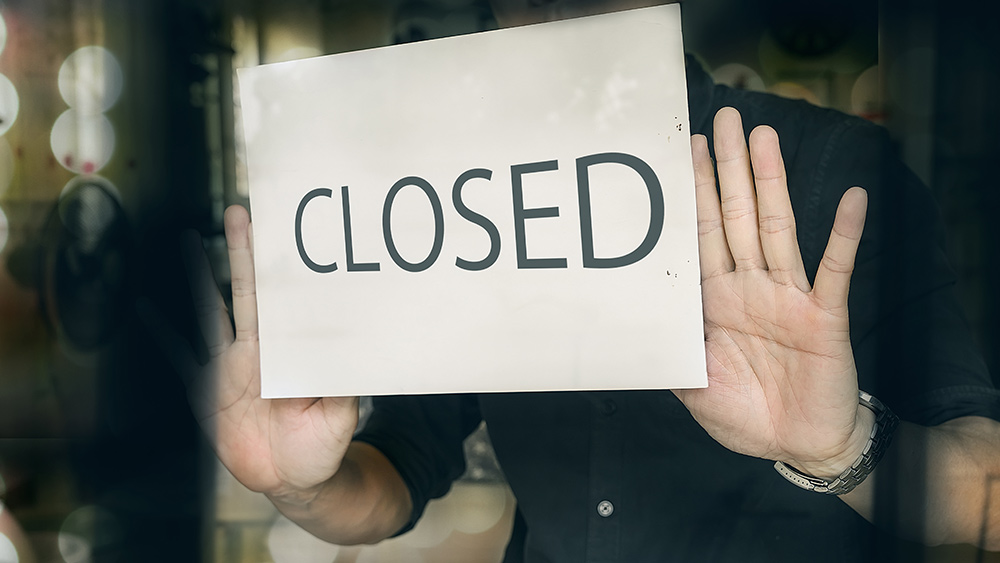(JD Heyes – Natural News) The biggest problem with showering the country with money under the guise of trying to provide ‘relief’ for people, whether it’s the economic crisis of 2009 or the Wuhan coronavirus (COVID-19) pandemic, is that such helicoptering of money rarely comes off as efficient.
What’s more, when there are literally trillions of dollars up for grabs, it only makes sense that a long line will form quickly to get some of it.
Only, when that happens, it usually means that the least needy wind up with the most ‘relief.’
That’s what’s happened with money meant for small businesses suffering economically due to mandated closures under coronavirus-related shutdown orders.
According to CNBC, “hundreds of millions of dollars of Paycheck Protection Program funds have been claimed by large, publicly traded companies,” though the idea was to ensure the vast majority of that money went to smaller businesses with dozens, not hundreds or thousands, of employees.
Citing research from financial firm Morgan Stanley, the U.S. government has allocated some $243.4 million of the total $349 billion PPP funding to publicly traded companies.
Some of them include DMC Global ($6.7 million loan amount); Wave Life Sciences ($7.2 million); MannKind ($4.9 million); and Lindblad Expeditions ($6.6 million). These firms have market values of $405 million, $286 million, $273 million, and $264 million respectively.
And they represent just the tip of the fraudulent iceberg, though they are the ‘worst’ offenders.
CNBC notes:
The PPP was designed to help the nation’s smallest, mom-and-pop shops keep employees on payroll and prevent mass layoffs across the country amid the coronavirus pandemic.
The business network noted further that at least 75 companies that received the aid are publicly traded; together, they have received $300 million in low-interest, taxpayer-supported loans, a separate report published by The Associated Press found.
It’s as if no one really cared who got the funds
“I think you’ve seen some pretty shameful acts by some large companies to take advantage of the system,” said Howard Schultz, the former Starbucks chairman and CEO who flirted with an independent presidential run this year.
Rather, the U.S. government should act “as a backstop for the banks to give every small business and every independent restaurant a bridge to the vaccine. And that is the money and the resources to make it through,” he added. (Related: Will people in the U.S. have to cope with another 18 months of rolling coronavirus shutdowns? This expert thinks they will.)
Data from the Small Business Administration, which is administering the PPP loans, shows that 4,400 of the approved loans are in excess of $5 million.
A plurality of the money — now gone, by the way, with new funding being blocked by House Speaker Nancy Pelosi (D-Calif.) — went to the construction industry (13.12 percent).
“Professional, scientific and technical services received 12.65%, manufacturing received 11.96%, health care received 11.65% and accommodation and food services received 8.9%,” CNBC reported.
Congress approved the PPP as part of the CARES Act last month, adding that the plan was to offer a first-come, first-served loan program, which in and of itself is ripe for abuse. Larger companies have staff they can dedicate to researching such programs and filling out the necessary paperwork in a much more timely fashion than a small mom-and-pop shop.
But in the race to ‘make funds available as quickly as possible,’ the objective of ensuring that the most needy got the help was sidelined by political expediency.
It’s as if no one really cared who got the funds, per se, only that they got distributed fast so political leaders on both sides of the aisle could say, Look what we did?!
Now, the fund is depleted, however, and scores of small businesses that could have been saved by loans a fraction of the amounts given to these large corporations is gone.
Soon, so, too, will be those small businesses. What a great program, huh?
Sources include:
Click below for original article
